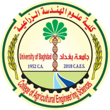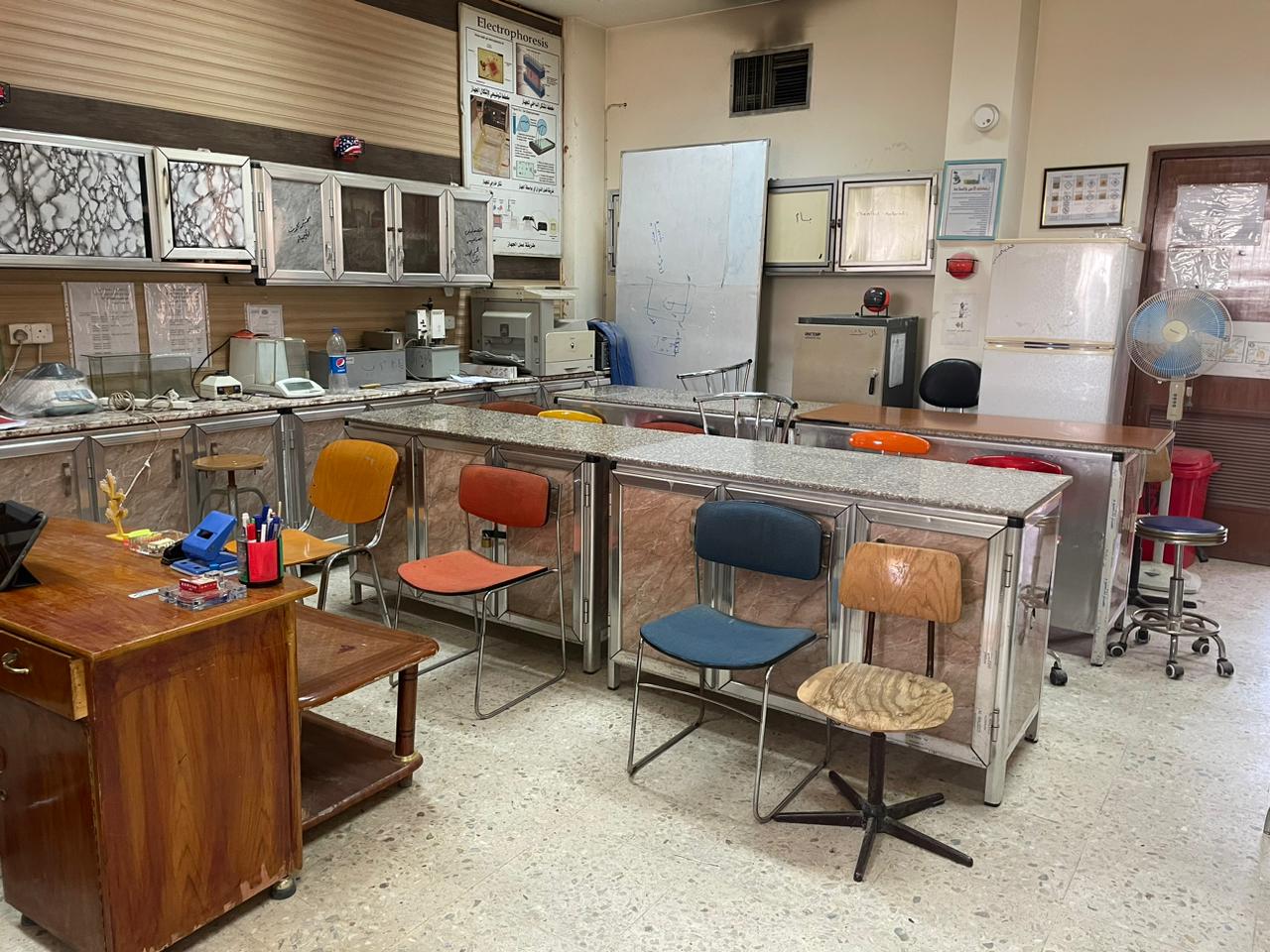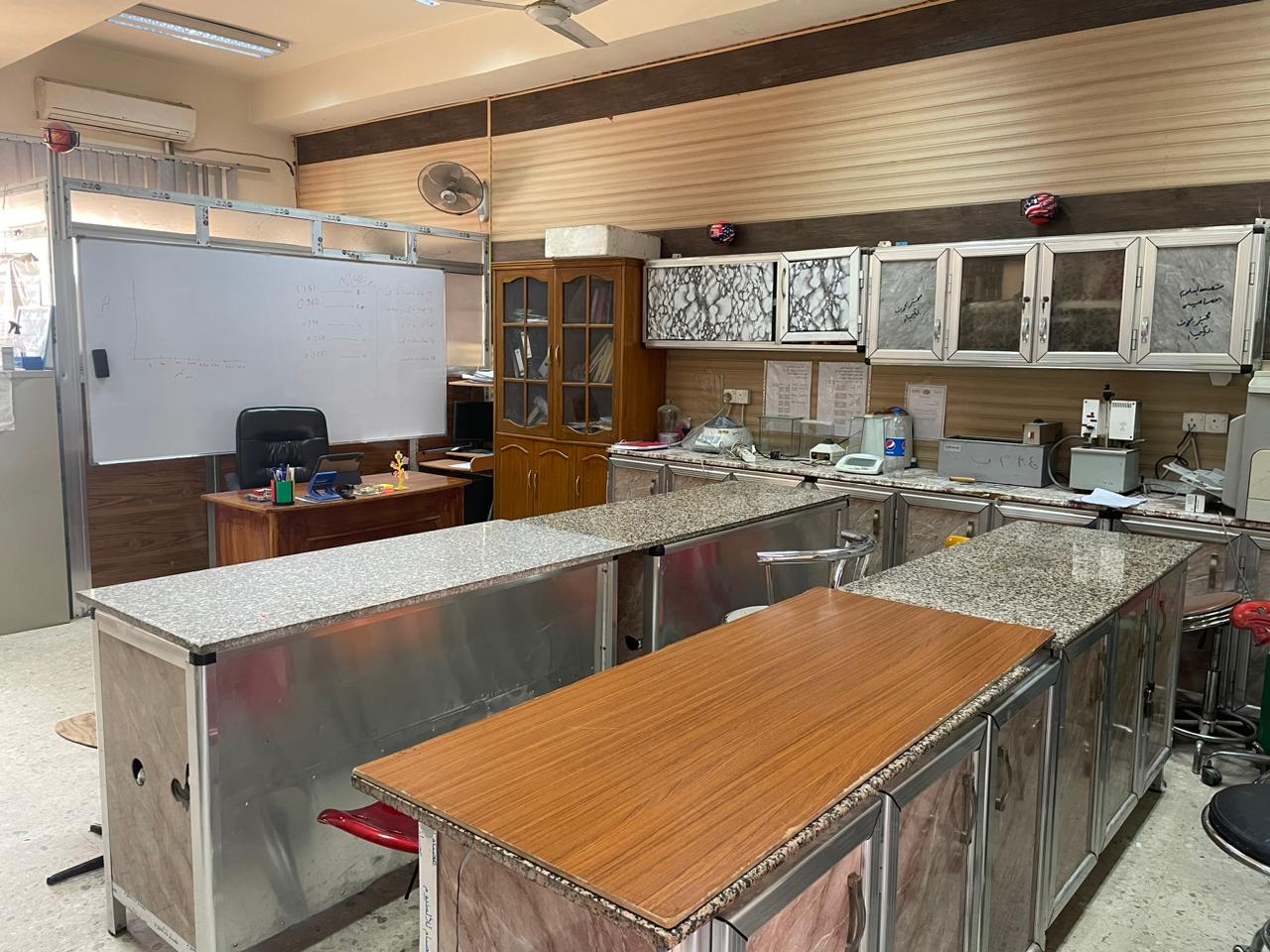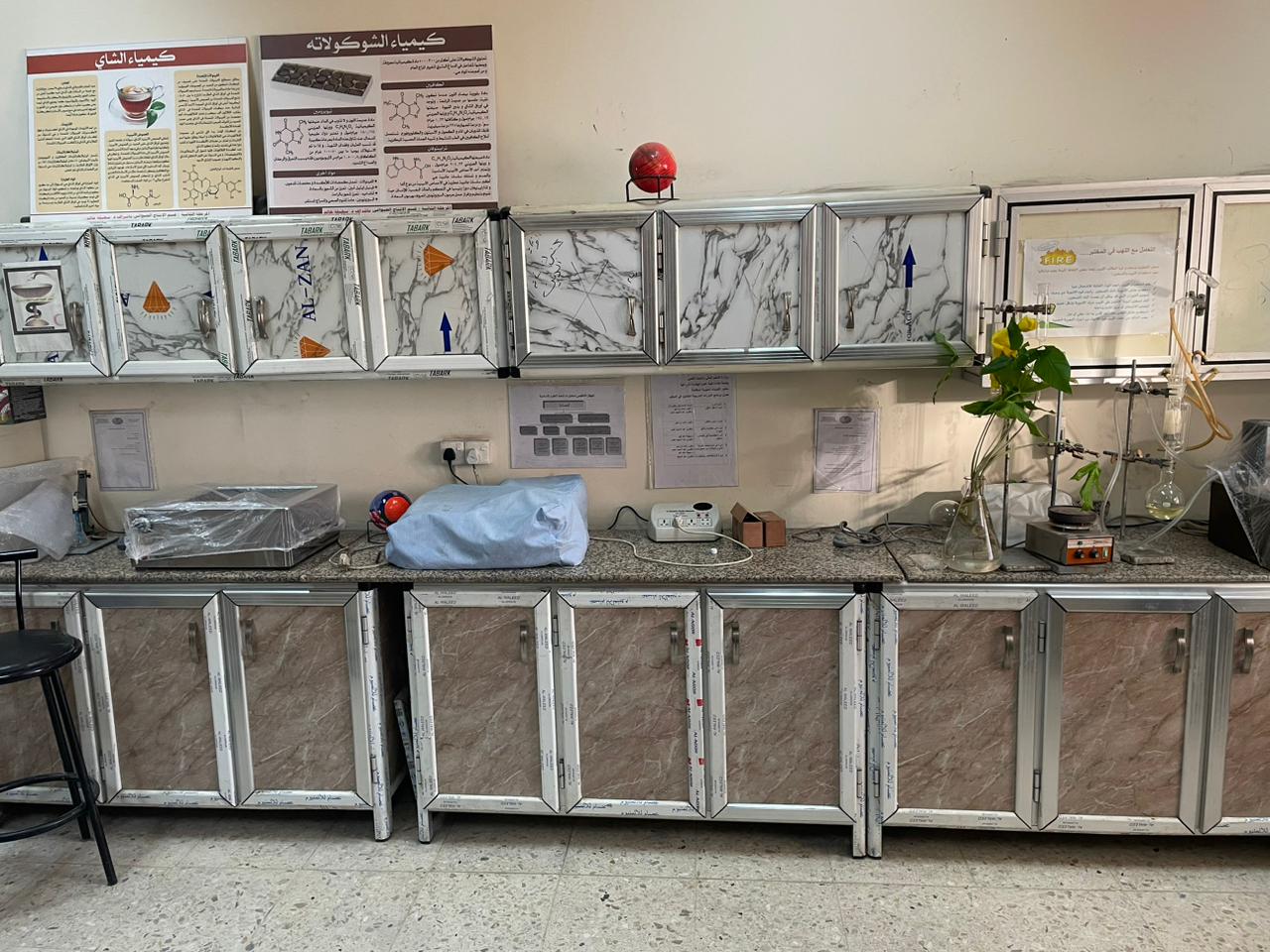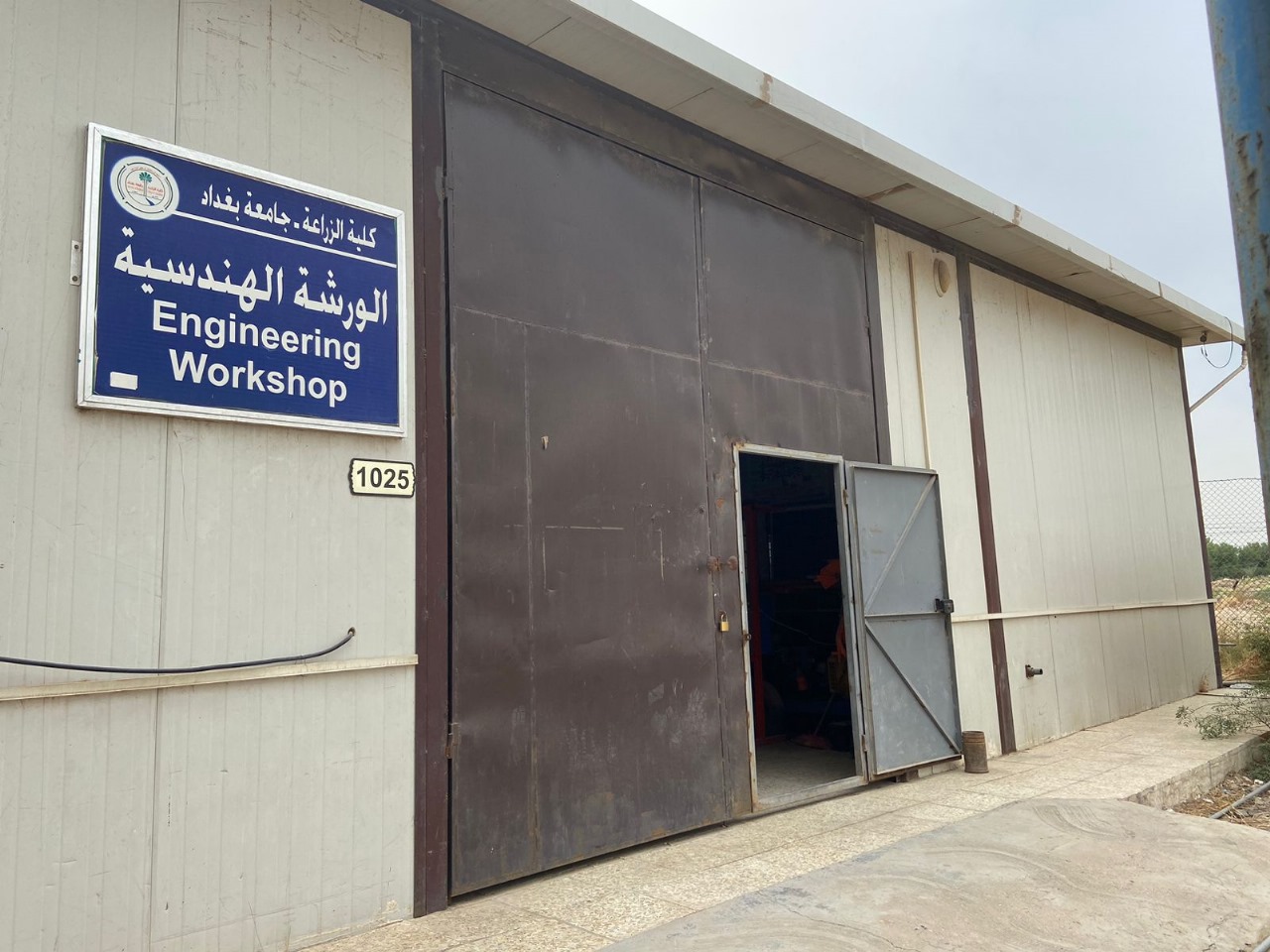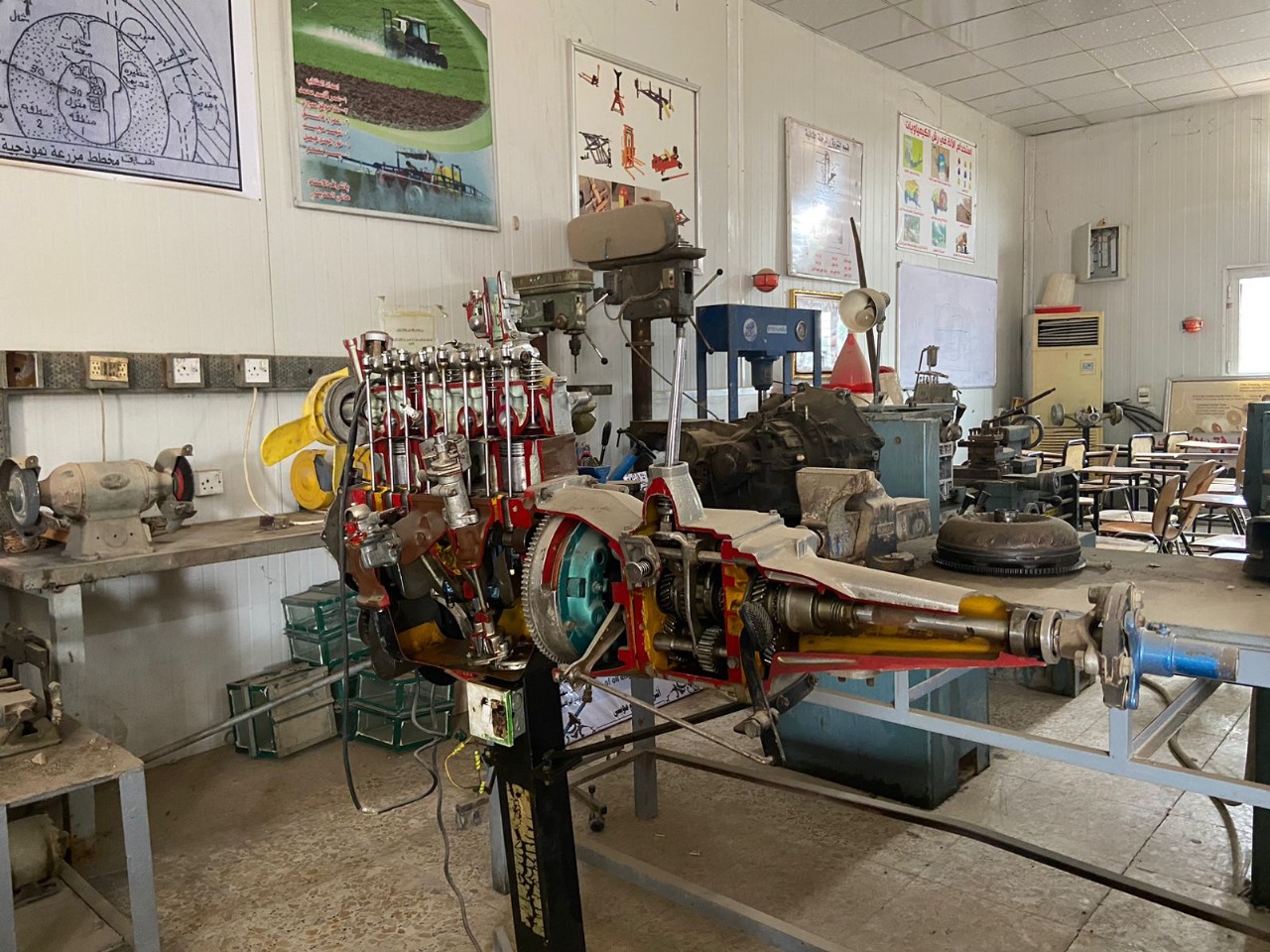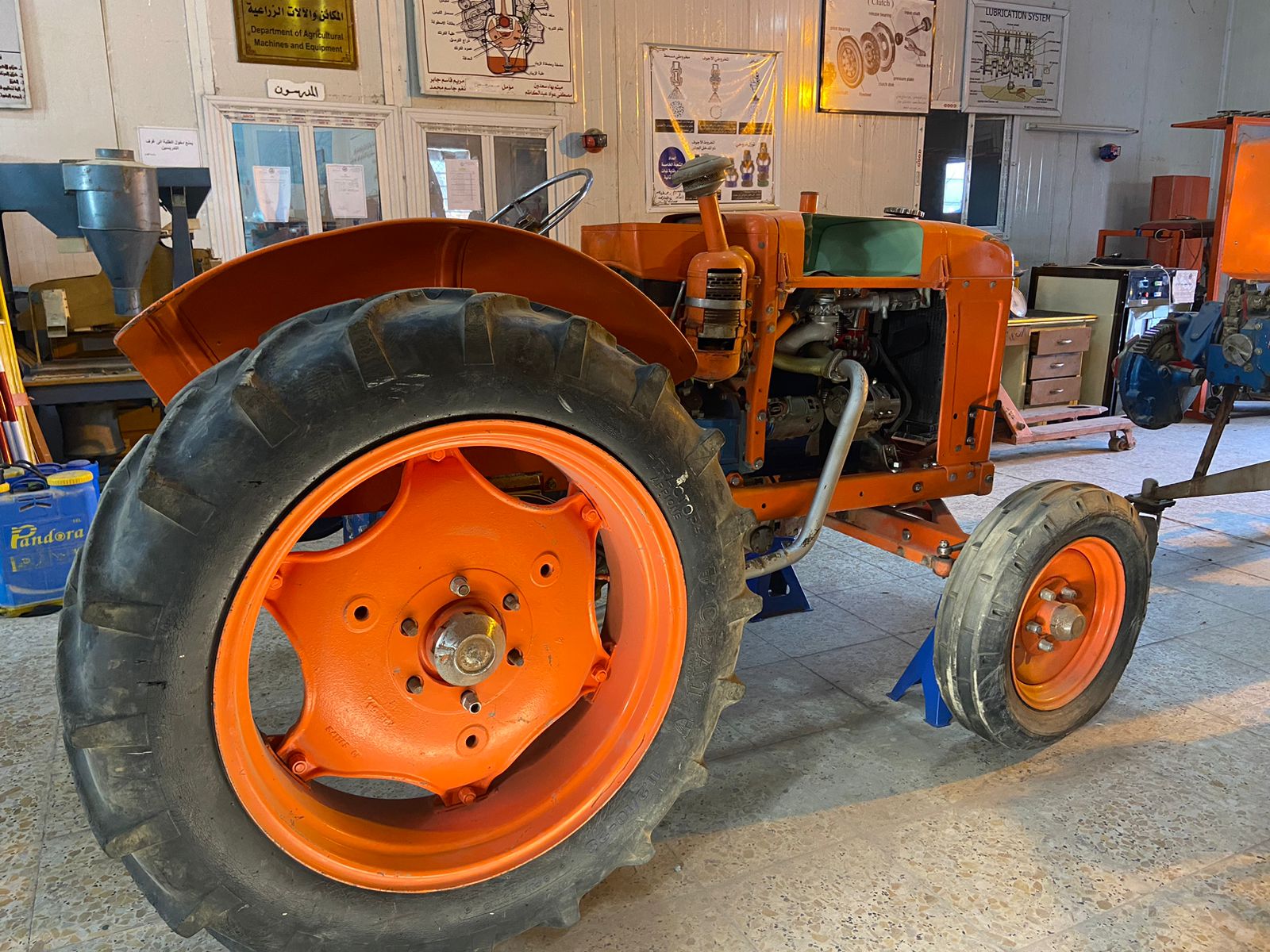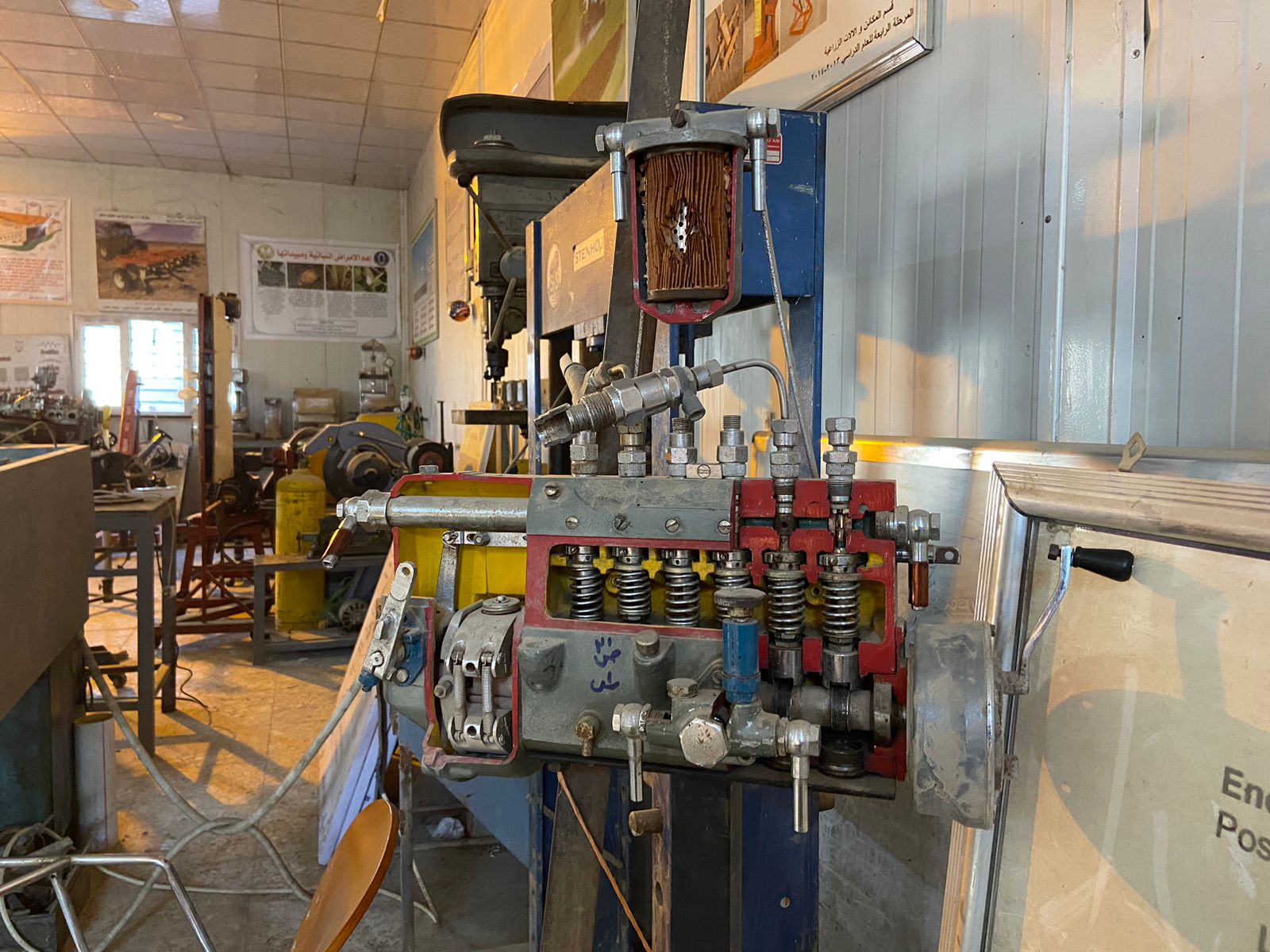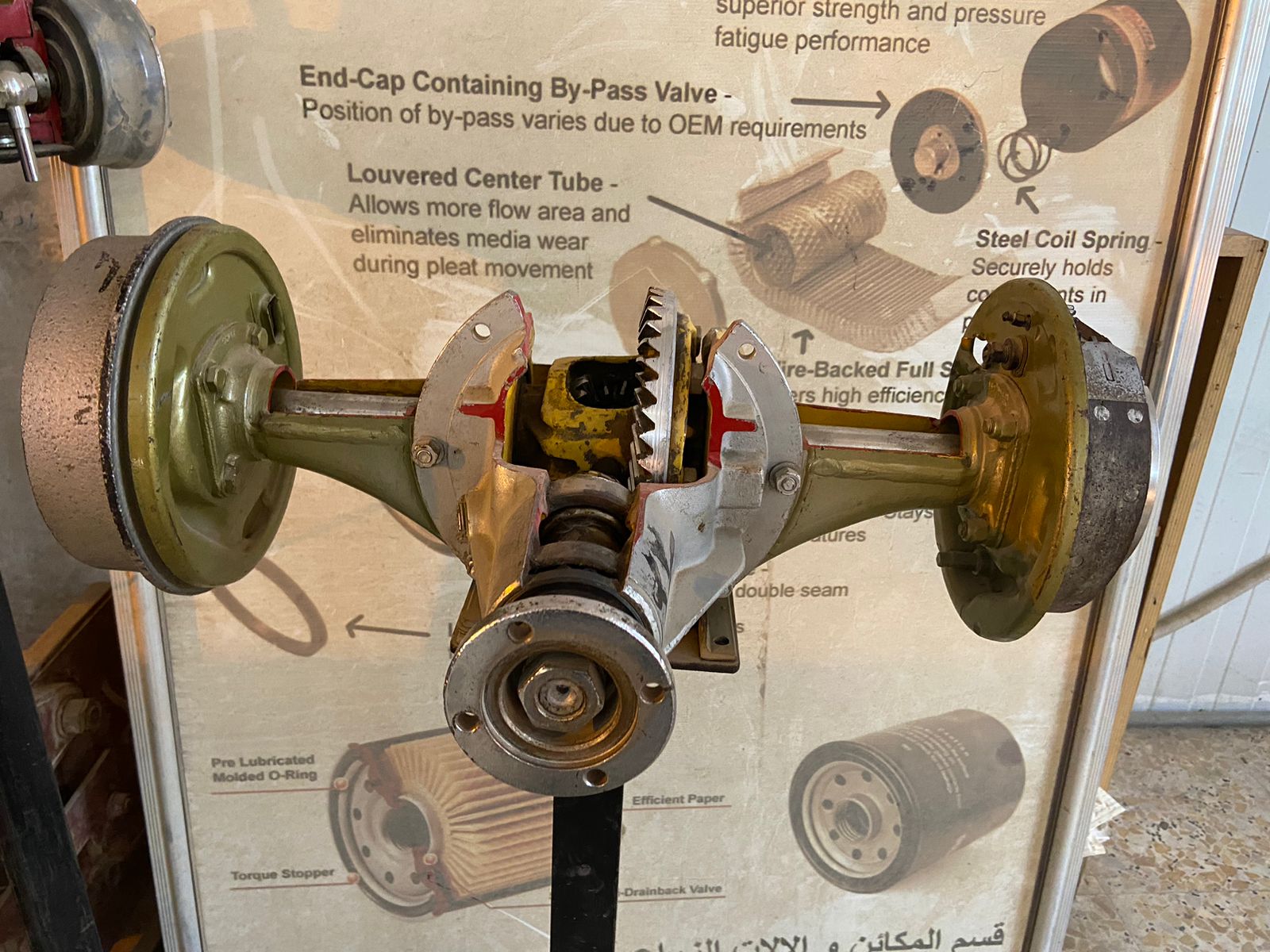“Welcome to the Department of Agricultural Machines and Equipment Labs at the College of Agricultural Engineering Sciences. Our laboratories serve as a specialized center for technical innovation, offering students essential resources for advanced Agricultural Machinery research. We focus on providing a practical understanding of farm mechanization and engineering principles to enhance agricultural productivity.
The Department of Agricultural Machines and Equipment Labs is committed to academic excellence within the College of Agricultural Engineering Sciences. By integrating theoretical knowledge with hands-on practice, we empower our students to lead in Agricultural Machinery research and development. Our facilities are equipped to handle various scientific experiments ranging from basic physics to complex mechanical engineering.
Below is a detailed list of the specialized scientific laboratories available
About the Laboratory
The Biochemistry Laboratory is interested in conducting chemical reactions on sugars, fats, and proteins and benefiting from these reactions in the field of manufacturing foodstuffs and medicines.
Special experiments can also be conducted in the field of pathological analyses, such as enzyme and hormone analyses. The laboratory contains a centrifuge. The laboratory was established in 1971, with primary studies students being the beneficiaries of the laboratory
Vision, Message, and Objectives of the Lab
Vision:
The vision of the laboratory is to excel in qualifying graduates at the highest level of science and training to be competent specialists in linking the science of biochemistry to their various specializations through development, modernization and change in the practical curriculum according to the approach that serves our students and then society.
Message:
1- Introducing the student to experiments related to biochemistry and their relationship to agricultural specializations
2- Developing the student’s skills in the practical field
3- Preparing graduates to be able to lead a chemical laboratory in a practical field
Objectives:
Teaching the student how to identify chemical compounds (carbohydrates, fats, proteins) and providing him with sufficient information to enable him to understand the vital activities taking place and their impact on the human body at the molecular level, and applying them with practical lessons and demonstrating the methods used to diagnose their existence.
About the Lab
The General Physics Laboratory is interested in conducting experiments for some branches of physics, which are closer to the specialty of agricultural sciences, such as surface tension experiments, finding ground acceleration, finding the viscosity of liquids, and experiments to find atmospheric pressure and relative humidity, which benefit all departments of the college, as well as electrical and mechanical experiments, which benefit the Department of Machinery and Instruments. Agricultural experiments and finding the density of objects. The laboratory contains a number of devices, such as a barometer to measure atmospheric pressure, a hygrometer, a spectrometer, a voltmeter, an ammeter, a resistor box, a sensitive balance, and other tools used in experiments, such as a vernier, a metric ruler, and various sizes. The laboratory was established in 1971, with primary studies students being the beneficiaries of the laboratory.
Vision, Message, and Objectives of the Lab
Vision:
The General Physics Laboratory was established and equipped with the necessary equipment to conduct distinguished scientific experiments. This laboratory contains physics equipment in which the first stages are taught.
Message:
The Physics Laboratory seeks to teach and develop the skills of primary studies students in applying the theoretical study curriculum in a practical way, by conducting scientific experiments and obtaining the required results from the experiments in accordance with the curriculum approved by the Department of Basic Sciences in order to raise the scientific and practical level of students of the College of Agricultural Engineering Sciences in continuing to prepare Advanced scientific research and studies.
Objectives:
1- Providing the student with the knowledge and technical skills to calculate natural constants and how to deal with devices and equipment within the general physics laboratory
2- Providing the student with the ability to think, analyze and discuss results, and raise his level of reasoning and deduction.
3- Make the student able to link theoretical ideas to general physics experiments by developing his practical skills.
4- Refine and build the student’s personality by discussing practical experiences, carrying out extracurricular activities, and providing an appropriate environment
About the Lab
The General Chemistry Laboratory is interested in performing chemical reactions on elements and detecting their presence. These reactions can be used to detect the presence of ions and elements in soil or food materials. Special experiments can also be conducted in the field of agriculture. Such as the manufacture and use of chemical fertilizers. The laboratory contains a centrifuge and is used to separate sediments from clear solutions. The laboratory was established in 1971, with primary studies students being the beneficiaries.
Vision, Message, and Objectives of the Lab
Vision:
Preparing college students so that they are skilled in performing practical experiments
He has sufficient information about chemicals…and assistance in preparing graduation research
Message:
The General Chemistry Laboratory seeks to train students to conduct experiments in a practical way and to link these experiments to the student’s specialty, such as detecting the elements present in the soil and identifying some devices such as the centrifuge.
Objectives:
Preparing graduates who have experience in performing chemical reactions and using some chemical devices. Contributing to overcoming the difficulties facing the student. Contributing to developing the student’s abilities to rise to the level of students in other countries.
About the Lab
The Analytical Chemistry Laboratory is concerned with the field of analytical chemistry. It is possible to conduct experiments related to analytical chemistry, such as experimenting with neutralization reactions between sodium carbonate and hydrochloric acid, oxidation and reduction reactions, complex formation reactions, iodometric reactions, estimating the hardness of water, preparing a solution of sodium hydroxide and comparing it with a standard solution of hydrochloric acid, and gravimetric analyses. The laboratory contains a sensitive balance, an electric thermostat, and a distillation device. The laboratory was established in 1971, with primary studies students being the beneficiaries of the laboratory.
Vision, Message, and Objectives of the Lab
Vision:
1- Preparing college students so that they are skilled in conducting laboratory experiments.
2- Preparing students with sufficient knowledge and knowledge of how to deal with chemicals and solutions found in nature and knowing their benefits and harms.
3-Helping students in preparing graduation research.
Message:
The Analytical Chemistry Laboratory seeks to introduce primary studies students to the glass devices and tools used in the laboratory, such as the sensitive balance, the volumetric and conical flask, the buret, and other glass tools, and to teach the student how to use them, how to prepare solutions, and how to calculate their concentrations accurately, and to teach them how to deal with dangerous chemical materials with caution to ensure their safety.
Objectives:
Preparing graduates with experience in using laboratory equipment and laboratory experiment equipment.
Contributing to overcoming the difficulties facing students.
Contributing to developing students’ capabilities to raise the level of capabilities in developed countries.
Guiding students and providing advice and guidance to them.
About the Lab
The laboratory is interested in the field of organic chemistry. It is possible to conduct experiments related to organic chemistry, such as the preparation of cyclohexene, the preparation of tert-butyl chloride, the tests for alcohols, the preparation of acetone, the tests for aldehydes and ketones, the preparation of benzoic acid, the preparation of ethyl acetate, the preparation of aspirin, and the preparation of sodium or potassium soap. The laboratory contains a sensitive balance and an electric thermometer. The laboratory was established in 1971, with primary studies students being the beneficiaries.
Vision, Message, and Objectives of the Lab
Vision:
1- Preparing highly skilled cadres in conducting laboratory experiments.
2- Providing all the equipment the student needs to complete his practical experiments.
3- Expanding students’ understanding of scientific reasoning, especially when they enroll in postgraduate studies, because this specialization has a close relationship with other scientific specializations.
Message:
The Laboratory of Organic Chemistry for Preliminary Studies seeks to provide the place and scientific equipment to conduct laboratory experiments required by students of preliminary studies to contribute to raising the scientific level in the College of Agricultural Engineering Sciences and under the supervision of professors with scientific titles (professor, assistant professor, teacher, assistant teacher) in addition to specialized technicians. In the field of operating devices and equipment.
Objectives:
Guiding students, providing scientific advice, and guiding them in conducting their practical experiments in the field of organic chemistry.
The organic chemistry lesson is considered the cornerstone of many specialized lessons in the college’s various departments.
Contributing to developing the spirit of scientific research among students in preparation for completing their studies in their scientific departments.
About the Lab
The laboratory is interested in conducting practical experiments that enable graduate students to acquire skills in laboratory work, such as preparing various chemical solutions and using different separation methods to separate substances such as amino acids, oils, etc., as well as identifying the concentration of different substances using spectrometer technology and other experiments. The laboratory contains a centrifuge for separation and a spectrophotometer to determine the absorbance of solutions to find their concentrations in an accurate manner. The laboratory was established in 1971, with graduate students (Master’s and PhD) being the beneficiaries.
Vision, Message, and Objectives of the Lab
Vision:
Preparing postgraduate students so that they are skilled in performing practical experiments related to their field of research
He has sufficient information about chemicals.
Message:
The advanced biochemistry laboratory seeks to train postgraduate students to conduct experiments in a practical way and to link these experiments to the student’s specialization, such as knowing the agents that affect enzymes, methods of separating substances, different separation methods, preparing different solutions, and learning about the operation of some devices such as the centrifuge, the spectrometer, and the soxolite.
Objectives:
Providing graduate students with experience and skills in performing chemical reactions and using some chemical devices
Contributing to overcoming the difficulties facing the student
Contributing to developing the student’s abilities to rise to the level of students in other countries
About the Engineering Workshop
The engineering workshop is interested in the field of agricultural and engineering operations. It is possible to conduct special experiments on metals, such as welding, turning, and maintaining agricultural tractors, as well as agricultural equipment. Special experiments can also be conducted in the field of materials, such as tensile testing and compression testing, as well as experiments in the field of internal combustion engines. The workshop contains lathes, thermal furnaces, a tensile testing device, a pressure testing device, cutting devices, welding devices, multiple pumps, an engine for experiments, as well as study models. The engineering workshop was established in 1990 for the benefit of undergraduate and graduate students, in addition to faculty members
vision, Message, and Objectives of the Workshop
Vision:
The vision is to work hard for excellence and advancement through the application of agricultural engineering technologies, especially with regard to the application of engineering experiments
Message:
Preparing a specialized cadre in the field of machinery and machinery to keep pace with scientific development to meet the requirements of work and the local market
Objectives:
Applying scientific theories by applying the theoretical aspect practically
Directing scientific research to be applied research
Strengthening the practical side of students
Implementing quality programs in order to improve practical performance

